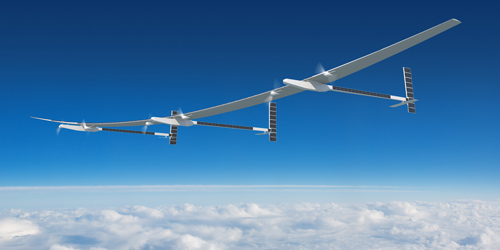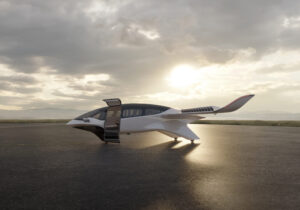Headquartered in Manassas, Virginia, Aurora Flight Sciences (Aurora) has unveiled Odysseus, the company’s solar-powered autonomous aircraft, now the world’s most capable aircraft of its type.
Combining advanced solar cells with lightweight materials, Odysseus is an ultra-long endurance, high-altitude platform which can effectively fly indefinitely, powered solely by clean, renewable energy.
“Aurora was founded by the idea that technology and innovation can provide powerful solutions to tough problems that affect all of humankind. Odysseus was an idea born out of Daedalus [a 1988 human-powered 72-mile flight] that is now a real solution to advancing the important research around climate change and other atmospheric chemistry problems,” said Aurora President and CEO John Langford.”
According to Aurora, an independent subsidiary of Boeing, a number of key enabling factors inspired by the Daedalus project have propelled the Odysseus project forward:
– Odysseus can persistently and autonomously remain on station. This enables communication and data gathering over a specific location. No other solar aircraft offers this capability.
– Odysseus has a greater year-round global operating zone than any other vehicle in its class.
– Odysseus can carry a larger payload than any other aircraft in development or production in its class. This enables more missions and better resulting data quality from each mission.
– Odysseus can be deployed at a fraction of the cost of a satellite and can spend dramatically more time aloft than a conventional UAV. It can receive payload and hardware options and can be quickly customized, re-tasked, and re-located as missions evolve.
Odysseus is a first-class solution for climate and weather researchers. Its payload capacity provides researchers with long-term, high-resolution observation capabilities, while also being capable of measuring vegetation, ice coverage and flow rates, and even ground moisture. Weather and storm monitoring during peak seasons are now more affordable and accurate through Odysseus’ ability to track and measure the movement of severe weather events, all while powered by clean energy.
Odysseus’ first flight is scheduled for the Spring of 2019.




























